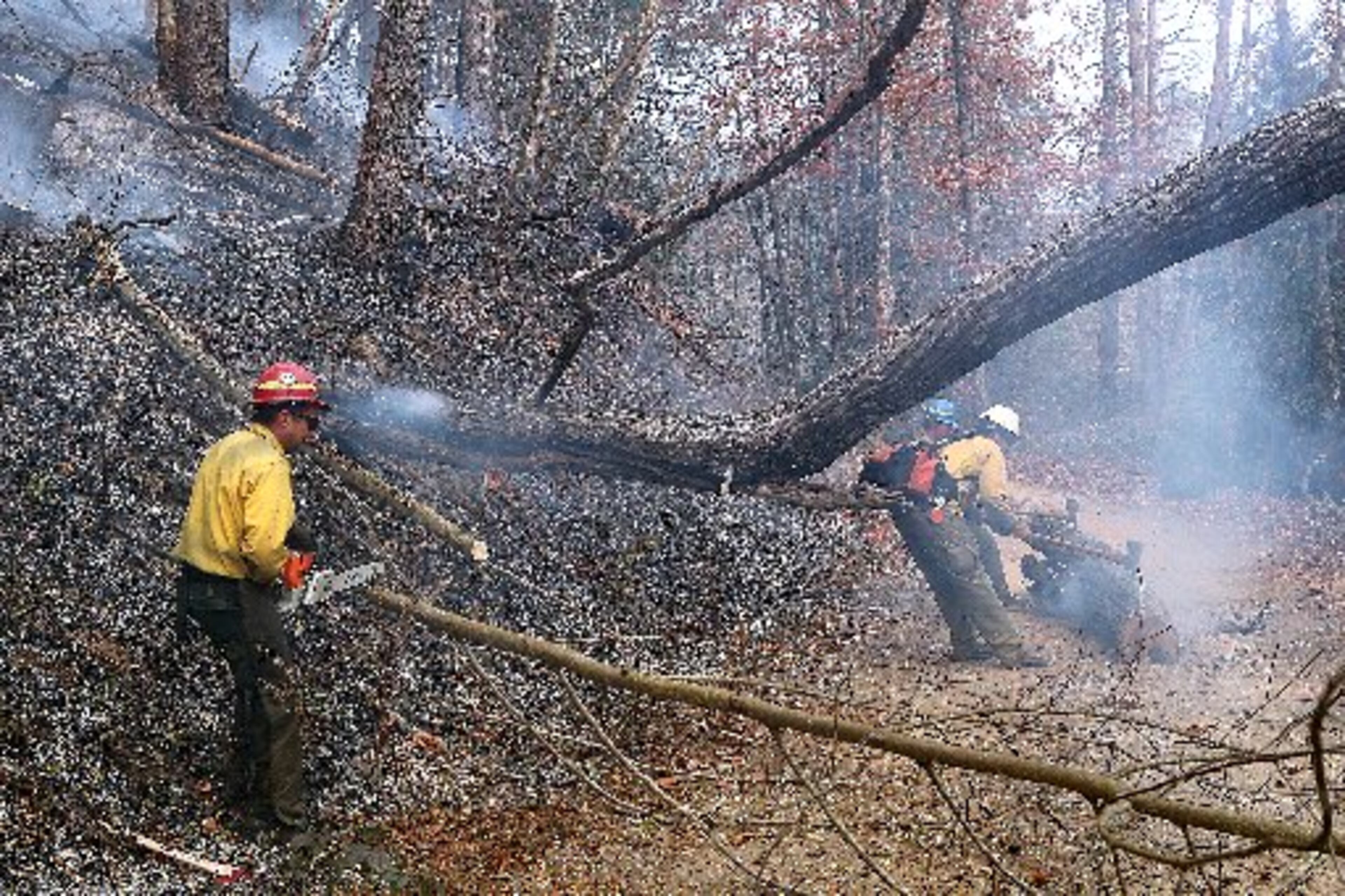Atlanta headed toward 31 days without rain
ATLANTA FORECAST
Today: Mostly sunny. 67
Tonight: Clear. Low: 44
Tomorrow: Mostly sunny. High: 69
» For a detailed forecast, visit The Atlanta Journal-Constitution weather page.
Remember the last time it rained?
If you’re stumped, that’s because Atlanta has gone 30 consecutive days without measurable rainfall for the first time in 50 years. That has happened only three other times: 1904, 1952 and 1961, according to Channel 2 Action News.
“Today will be the 31st day without measurable rainfall in” Atlanta, Channel 2 meteorologist Brian Monahan said.
The record is 39 days, and it is “looking likely we’ll get there,” he said.
The month-long streak of dry conditions and frequent northwest winds and smoke from North Georgia wildfires have wreaked havoc on air quality in metro Atlanta.
A code red air quality alert was issued earlier Wednesday for metro Atlanta and Fulton County due to smoke originating and spreading from the wildfires in northwest Georgia and southeast Tennessee.
RELATED: See which Atlanta neighborhoods have been worst affected by the wildfire smoke
Under code red conditions, the National Weather Service recommends everyone limit prolonged outdoor exertion. Wildfire smoke can irritate your eyes, nose, throat and lungs. Fine particles in the air are likely to be highest when smoke is readily detected, posing health risks.
“People who are sensitive to smoke and people with heart or lung disease should limit their outdoor exposure because particle concentrations can remain elevated throughout the day even in the absence of smoke,” Fulton County District Health Director Dr. Kathleen Toomey said.
RELATED: Watching wildfires in North Georgia
Metro Atlanta's Air Quality Index dropped back into the moderate range with a 79 at 10 8 p.m.
Fires have already ripped through more than 30,000 acres in Fannin and Rabun counties.
The largest active fire, the Rough Ridge fire, was 30 percent contained and had burned through nearly 24,000 acres in the Cohutta Wilderness area. The blazes led to a total fire ban in the Chattahoochee-Oconee National Forest.

Rain is desperately needed to help firefighters trying to keep flames contained in the rough terrain of the North Georgia mountains, but it’s not expected anytime soon.
Temperatures were 60 degrees in Atlanta, 41 in Blairsville and 46 in Griffin at 10 p.m.
» The Air Quality Scale used in Atlanta:
“Good” AQI is 0 to 50. Air quality is considered satisfactory, and air pollution poses little or no risk.
“Moderate” AQI is 51 to 100. Air quality is acceptable; however, for some pollutants there may be a moderate health concern for a very small number of people. For example, people who are unusually sensitive to ozone may experience respiratory symptoms.
“Unhealthy for Sensitive Groups” AQI is 101 to 150. Although the general public is not likely to be affected at this range, people with lung disease, older adults and children are at greater risk from exposure to ozone, whereas persons with heart and lung disease, older adults and children are at greater risk from the presence of particles in the air. “Unhealthy” AQI is 151 to 200. Everyone may begin to experience some adverse health effects, and members of the sensitive groups may experience more serious effects.
“Very Unhealthy” is AQI is 201 to 300. This would trigger a health alert signifying that everyone may experience more serious health effects.
“Hazardous” AQI is greater than 300. This would trigger a health warning of emergency conditions. The entire population is more likely to be affected.
» Here are tips from the Georgia Department of Public Health:
Pay attention to local air quality reports and news coverage related to smoke.
Keep indoor air as clean as possible, keeping windows and doors closed.
Run an air conditioner, and keep the fresh-air intake closed and the filter clean.
Avoid activities that increase indoor pollution such as vacuuming, burning candles or using fireplaces or gas stoves.
Do not rely on paper dust masks, which will not protect your lungs from the small particles found in wildfire smoke.
Follow the advice of your doctor or other health care provider if you have asthma or another lung disease.


